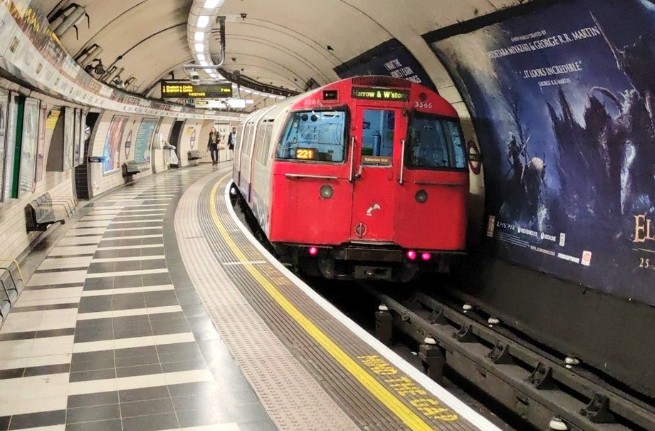Commuters are bracing for major disruption as the capital’s transport system prepares for yet another wave of industrial action.
A week-long London Underground Tube strike is scheduled to begin on Friday, 5 September, with Docklands Light Railway (DLR) staff also joining the walkouts two days later.
Every Tube line is set to be hit, with the Elizabeth line and London Overground spared only because their workers belong to different unions. Buses, however, will also be impacted by the wider unrest.
Unions Appeal
The RMT union says patience has run out. Leaders accuse Transport for London (TfL) of ignoring serious concerns over fatigue, punishing shift rotations, and unsocial hours.
RMT’s general secretary Eddie Dempsey was blunt: “Our members are doing a fantastic job to keep our capital moving and work strenuous shift patterns to make sure Londoners get to their destinations around the clock.
They are not after a King’s ransom, but fatigue and extreme shift rotations are serious issues impacting on our members’ health and wellbeing, all of which have not been adequately addressed for years by LU management.”
TfL, meanwhile, insists it has put a fair pay deal on the table and has improved working arrangements.
A spokesperson said: “We regularly meet with our trade unions to discuss any concerns that they may have, and we recently met with the RMT to discuss some specific points.
We are committed to ensuring our colleagues are treated fairly and, as well as offering a 3.4% pay increase in our ongoing pay discussions, we have made progress on several commitments we have made previously.
We welcome further engagement with our unions about fatigue and rostering across London Underground, but a reduction in the contractual 35-hour working week is neither practical nor affordable.
Given the improvements we have recently put in place in response to concerns raised by our unions, we urge the RMT to put our fair, affordable pay offer to their members and to continue to engage with us rather than threaten strike action, which will only disrupt Londoners.”
How Much Do Tube Staff Actually Earn?
With the debate raging, attention has turned to salaries. Figures released by TfL reveal that the average London Underground driver was earning £65,179 a year as of April 2024. Advanced operators take home more, around £75,677.
Standard drivers make £35.70 an hour, with overtime shooting up to £44.62. Advanced operators earn £39.20 per hour, or £49.00 if working extra shifts.
Elizabeth line drivers, following a new pay deal earlier this year, now earn a flat £75,000 a year – outstripping many Tube colleagues.
Bus drivers, however, are on far less. Their hourly rate ranges between £15 and £20, depending on experience, which works out to roughly £31,000 to £37,000 annually.
The real battle is over shift patterns. London Underground motorists and station staff rotate between early mornings, late evenings, and late work.
Early thresholds can be as chastising as 4.30 am, while night duties frequently stretch to 7 am. The RMT says these grim schedules are “ unsustainable ” and dangerous to the good.
Strikes on London transport are nothing new. From the surge of public strikes in 2022, to pension controversies in 2023, to the ASLEF action planned( and latterly cancelled) in April 2024, artificial uneasiness has been a constant point.
The pattern is familiar: unions argue staff face long hours, rising living costs, and poor treatment. TfL counters with claims of budget crises, slashed passenger revenues post-pandemic, and restrictions from the central government. The two sides rarely meet in the middle.
What happens this weekend?
- Friday 5 September, 6pm – RMT members at Ruislip depot walk out for 24 hours.
- Sunday 7 September onwards – Rolling strikes spread across different Tube lines.
- DLR walkouts – Begin in the same week over separate pay disputes.
The strikes will hit all Underground lines except the Elizabeth line and the London Overground. Commuters are being urged to allow extra time, expect packed services elsewhere, and consider cycling, walking, or working from home.
This latest strike underlines a deeper, long-standing tension between London’s transport unions and TfL. The stakes are high: the city depends on its Underground network like few other capitals. But with neither side backing down, it’s Londoners who will once again be caught in the middle.






